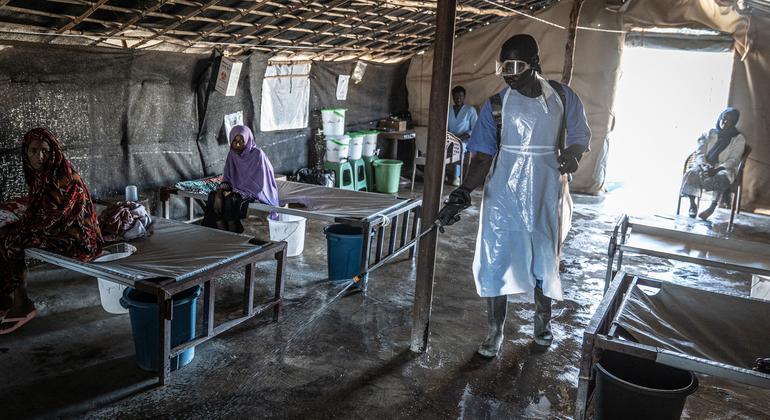In a report published on Wednesday, UNICEF underlined the growing threat of cholera in the country torn by the war, with more than 7,700 cases and 185 associated deaths reported in the state of Khartoum only since January 2025. Alarming, more than 1,000 cases affected children under the age of five.
Since the start of the conflict in April 2023, three million people have been forced to flee their homes, displaced internally and in the region.
Back to water without water
Although improving access to certain parts of the Khartoum state has enabled more than 34,000 people to return since January, many are back in seriously damaged houses and do not have access to the basic water and sanitation services.
Recent attacks against electrical infrastructure in the state of Khartoum have aggravated the crisis, disturbing the supply of water and forcing families to collect water from unsafe and contaminated sources.
This considerably increases the risk of cholera, especially in densely populated areas such as travel camps.
UNICEF has implemented a several -component approach to the crisis, including the distribution of household water treatment chemicals, the delivery of more than 1.6 million cholera oral vaccines, the supply of cholera treatment kits, etc.
“Each day, more children are exposed to this double threat of cholera and malnutrition, but both are avoidable and treatable, if we can reach children in time,” said Sheldon Yett, UNICEF representative for Sudan.
Malaria and new prevention efforts
Also Wednesday, UNICEF launched a partnership with the Sudanese Ministry of Health and the World Fund to combat AIDS, tuberculosis and malaria to distribute nearly 15.6 million beds treated by insecticides to prevent the spread of malaria among vulnerable families through Sudan, as well as 500,000 additional nets for antenatal installations and immunization.
The campaign aims to protect 28 million Sudanese in 14 states.
As with cholera, conflicts and continuous movements have created conditions conducive to the spread of malaria. Overcrowded and unhealthy living conditions, associated with the approaching rainy season, present a serious health risk for millions, especially those who return to damaged communities.
In addition, the initiative aims to strengthen the availability of antimalarial drugs, rapid diagnostic tests and investments in strengthening the health system.
Critical medical supplies reach west of Darfur
In a more positive development, the World Health Organization (WHO) announced Tuesday that the El Geneina hospital in western Darfur received eight tonnes of medical supplies for nutrition, non -transmitted and mental health.
Delivery, supported by the World Bank in Africa, the project of action and the European Union, should support hospital operations for six months, providing vital support to one of the hardest regions affected by the multiple increasing crises.




